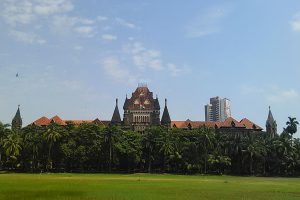Bombay High Court: S.C. Dharamadhikari and M.S. Karnik, JJ., dismissed an appeal filed against the order passed by Central Excise and Service Tax Appellate Tribunal, Mumbai (West Zone Bench) whereby it had allowed the respondent’s appeal against the order of the Commissioner of Central Excise and Service Tax confirming the demand of service tax of Rs 10,21,11,359.
The respondent had provided services for construction and upgradation of facilities at Shiv Chatrapati Sports Complex, Pune. According to the appellant, the services were covered under the category of “commercial or industrial services” defined under Section 65 (20 b) of the Finance Act, 1994 (prior to amendment vide Act 14 of 2010) as the said stadium was used for commercial purposes. A demand for payment of service tax was raised on the respondent but no payment was made. Representations were exchanged, and by order dated 15-9-2011, the demand of service tax was confirmed. As against this, the respondent approached CESTAT and the said order dated 15-9-2011 was set aside. Aggrieved thereby, the appellant filed the present appeal.
It was not even the case of the appellant that the stadium was exclusively used for commercial purpose. The relevant agreement itself permitted the Committee to use 1/3rd of the total area for commercial purpose. The question before the High Court was whether the user of stadium area to the extent of 1/3rd of the total area for a commercial purpose would tantamount to “commercial or industrial construction service”?
Perusing Section 65 (25-b), the Court observed, “The language employed in the definition clause is clear and unambiguous. The plain meaning as can be understood from the definition clause, more particularly, the clarification contained in clauses (i), (ii), (iii) is that the construction ipso facto is not leviable to service tax, but it is only when it is used, or to be used, primarily for “commerce” or “industry” or work intended for “commerce” or “industry” that service tax can be levied. Thus, it is only that construction which is to be used or primarily to be used for commerce that is subject to levy of service tax.”
Finding that in the present case, the dominant user of the stadium was non-commercial, the Court held that no service tax was attracted. Therefore, upholding the impugned order, the court dismissed the present appeals. [CCE v. B.J. Shirke Construction Technology (P) Ltd., 2019 SCC OnLine Bom 477, decided on 15-03-2019]

